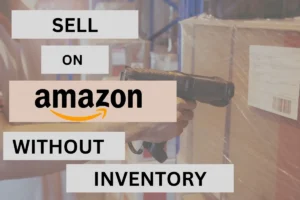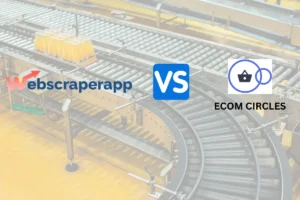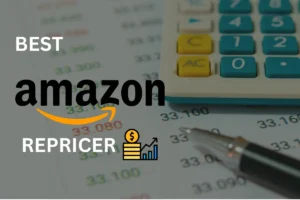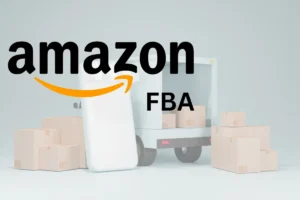Remaining compliant with tax laws can be tricky for even the most experienced business leaders. It’s common for eCommerce sellers to wind up in unnecessary confusion around sales tax compliance when they don’t need to pay sales tax in the first place.
Many merchants get left in the dark about eCommerce sales tax requirements – including exemptions, collections, and remittance. Those who know a thing or two about their tax positioning find the process intricate and time-consuming. This conundrum has led to a rise in cutting-edge tech solutions supporting busy entrepreneurs and business owners like you to navigate and manage eCommerce sales tax requirements.
In this article, we are going to discuss:
- How sales tax works for marketplace sellers
- Three ways to determine your tax collection and remittance obligations
- What to do if you are eligible for tax-exempt purchases
- How to access efficient and accurate tax exemption services for eCommerce
What is eCommerce Sales Tax?

eCommerce sales tax is a percentage of a product’s price that gets added to the sale at the point of transaction. It is a consumption tax, meaning a consumer pays the taxable amount once they purchase a taxable product or service from a retailer or eCommerce business.
Many eCommerce resellers are positioned between the marketplace and the end-consumer. This means they are exempt from paying sales tax when they buy goods. Instead, they collect and remit the sales tax upon sale to the consumer.
In the United States, 46 states impose sales tax on products and services. Each state is responsible for regulating and enforcing its tax laws, meaning that eCommerce businesses frequently encounter a colorful variety of tax regulations to comply with. In addition, there is no unified sales tax law prevailing across the United States.
In fact, many states make allowances for special tax districts – such as a city or county – that enforce their own sales tax directives. Additionally, marketplace facilitator tax requires platforms such as Amazon and Walmart to collect and remit sales taxes from marketplace sellers meaning your obligations as a seller further diversify. This results in a compilation of complex sales tax liabilities for sellers to understand and adhere to. So let’s break it down.
When Do You Need To Collect And Remit Sales Tax?
If you find that you are responsible for paying sales tax in a state where you sell goods to consumers, you must collect the correct sales tax from your buyers and remit that tax to the state. Without a resale certificate, resellers may need to pay tax on the products they purchase for resale as well – we’ll look deeper into that soon.
A range of factors determines whether you are obligated to charge and remit sales tax, though as a general rule, you must comply if you:
- Have a sales tax nexus in the same state as your buyers
- Sell taxable products in that state
The following three factors can help determine whether your eCommerce business needs to collect and remit sales tax.
Understanding Your Sales Tax Nexus

The term nexus means you have a strong economic connection with the state. If you have a nexus in the state, you must charge consumers sales tax and then remit the tax to the state.
Any eCommerce business will have a sales tax in its home state, though various state laws may prescribe that you have additional nexuses and obligations elsewhere. Here are some common circumstances resulting in a sales tax nexus.
Home State Nexus
The state where your eCommerce company is located is known as your home state nexus. This might include an office, a warehouse, a store, or another business location where you have a physical presence.
Employee Nexus
If you have any employees, contractors, or sales professionals performing work for your business in a different state, it may mean you have a nexus there.
Inventory Nexus
Usually, you are considered to have nexus in states where you store inventory. This can be the case even when there is no other physical presence or employed personnel in that state.
Economic Nexus
If you exceed state benchmarks for either sales volume or transaction volume (for example, over $100k in sales or over 200 transactions annually), you are considered to have a nexus.
Other Considerations for eCommerce businesses
eCommerce businesses can form nexuses based on several other considerations. If you have affiliate connections in a different state, temporarily sell products at events like trade shows, or if you have a third party ship products to buyers, you may create a nexus in that state.
How Do Different States Define Sales Tax Nexuses?
The majority of states define a nexus as “conducting business” or “engaged in business.” Since there is no unified law across the United States, each state is free to define a nexus and create local sales tax laws as they deem necessary.
If a state rules that you have a nexus there, you must abide by their local tax regulations. It is advisable to check with state websites or consult with a tax professional to ensure compliance. Failing to pay sales tax can be a costly and disruptive endeavor to recover from. Below is a table that gives a brief overview of different state’s nexus requirements in the U.S.
Is Your Product Taxable?
Each state determines which products are taxable and which are not. As a general rule, most tangible personal property such as home decor items or clothing is taxable. On the contrary, it’s common for products such as food items for personal use, certain medical supplies or devices, and goods sold to the federal or state government to be regarded as sales tax-exempt purchases.
Of course, there are exceptions to the rules in each state, so it’s crucial to ensure you’re well-versed in the local sales tax laws. For instance, the state of Pennsylvania does not impose a sales tax on clothing, Illinois charges a sales tax of only 1% on grocery items, and Delaware doesn’t charge a sales tax at all.
Based on the above, you may discover that your eCommerce company is required to collect and remit a reduced sales tax – or no tax at all – on the products you sell. It’s wise to have this confirmed by an accountant or other tax professional before proceeding. So how can marketplace sellers grow their business in confidence that they are in compliance with all sales tax requirements?
eCommerce Tax Collection and Remittance Support For Your Marketplace Storefront
If the idea of tax collection and remittance is giving you a headache, you’re certainly not alone. We’ve compiled a list of cutting-edge tech solutions that help you to collect sales tax on the products you sell, and remit sales tax collected to the state without the hassle.
Tax Jar
Tax Jar is a cloud-based platform helping modern marketplace sellers stay tax compliant by automating the sales tax lifecycle across all sales channels. Supporting over 11,000 tax jurisdictions, eCommerce companies can keep their finger on the pulse of economic nexuses, collecting the correct sales tax on individual products, and presenting filings and remittances on time.
Expanding into new markets is seamless with Tax Jar’s AI-driven product organization, real-time calculations, and gross transaction reporting. Flexible API facilitates a range of integrations with platforms including Walmart, Amazon, Etsy, and more. Plus, their award-winning customer support crew is readily available to assist with onboarding and education to get you started on the right foot.
Avalara
As one of the leading cloud-based solutions supporting eCommerce companies to sort their tax collection and remittance compliance, Avalara’s Avatax keeps accounting smooth and streamlined by calculating tax based on location and product.
With over 700 integrations, Avalara products can be used in conjunction with various apps associated with your eCommerce company. They have several features to help make tax classification and remittance easy.
The interface is intuitive to use, and they have a customer support team on standby to help with questions that sellers have.
Periodically Check Your Sales Tax Requirements
Local state laws are consistently in a state of flux. Systematically check that you comply with sales tax laws and have a valid resale certificate. Failure to comply with various tax law changes (for example, shifting nexus requirements from a transaction volume to a sales volume) can be a costly endeavor, better avoided.
Adaptations to business operations, such as hiring a new employee in a different state, establishing a physical presence in another state, or reaching a certain number of sales, may mean you now have a business nexus in that state. Conversely, closing down operations in a new location or changing suppliers may imply that your nexus no longer exists in that state.
What Is Marketplace Facilitator Tax?
A marketplace facilitator is a platform like Amazon or Walmart that contracts with third-party sellers to facilitate the sale of physical or digital goods and services. Marketplace facilitator tax is an obligation that a state places on marketplace facilitators to collect sales tax on anything sold into that state. These regulations shift the responsibility of calculating, collecting, and remitting sales tax from eCommerce merchants to the marketplace facilitators.
Marketplace facilitator tax laws began emerging in 2017. Today, almost every state has unique tax legislation that defines what a marketplace facilitator is, and the nature of third-party buyer or seller transactions that they tax.
Marketplace platforms must manage sales tax on all items sold by third-party sellers if the items get sold in states where facilitator tax legislation is enacted. In some states, local taxes are not included in MPF laws, and marketplace facilitators are not responsible for those taxes.
How Does Marketplace Facilitator Tax Affect My Tax Obligations?
If you sell into a state with this type of legislation, the marketplace you are contracted with will collect and remit sales tax on your behalf. Some states do not require eCommerce merchants to file taxes in their states since the marketplace has already done it. In other states, you may need to file a zero return. If you sell into a state that does not have these regulations, you must continue to calculate, collect and remit your own sales taxes.
When your eCommerce business sells across multiple platforms including marketplaces like Amazon or eBay and non-marketplace sites like Shopify or Woocommerce, you’ll have a different set of regulations to comply with for each state.
Here is a simple example to illustrate our points; let’s say you sell items through Amazon’s marketplace to five states – three of which have a facilitator tax statute on the books in their states, and two of which do not. Amazon must calculate, collect, and remit the state taxes on goods sold into the three states. In the other two states, you are responsible for collecting and remitting required sales taxes.
In reality, selling items to multiple states can be much more complex than the above example. It’s advised to speak with a tax expert about Marketplace Facilitator (MPF) laws in your nexuses, and use purpose-built tax compliance solutions to your advantage so your business seamlessly operates in accordance with all sales tax regulations.
At the time of this writing, there are only 5 states which do not have marketplace facilitator laws on the books and they are Alaska, Oregon, Montana, New Hampshire, and Delaware.
Frequently Asked Questions
Will My Sales Tax Obligations Change?
Your sales tax obligations may change over time. Factors such as transaction volume, sales volume, or the location of your sales tax nexus (for instance, due to market expansion or a change in supplier) may adjust your sales tax responsibilities.
Sales tax laws are regulated by each state and are subject to flux. Any number of shifts could result in your business transitioning from sales tax exemption to sales tax liability – or vice-versa. Periodically checking in with a tax professional will ensure your business remains compliant with sales tax regulations.
Which Products And Services Are Exempt From Sales Tax?
Sales tax exemptions exist in every state. Under Federal law, sales made to the federal government and its agencies are tax-exempt. These exemptions exist in most states for sales made to the state or its agencies, or any cities or counties.
Additionally, most states offer sales exemptions for the following products and services:
- Food supplies intended for home consumption
- Prescription medicine and specific medical devices
- Products paid for with food stamps
Final Thoughts
Navigating the sales tax requirements for an eCommerce merchant operating a business across multiple states can be a handful. Assuring compliance with local governments, fluctuating regulations, and tax laws often requires the luxury of spare time that many entrepreneurs and successful business owners simply do not have.
Luckily there are plenty of tech solutions offering sales tax exemption services for eCommerce businesses. With these services, you can rest assured that your business is tax compliant and your sales tax exemption processes are streamlined and well documented.







